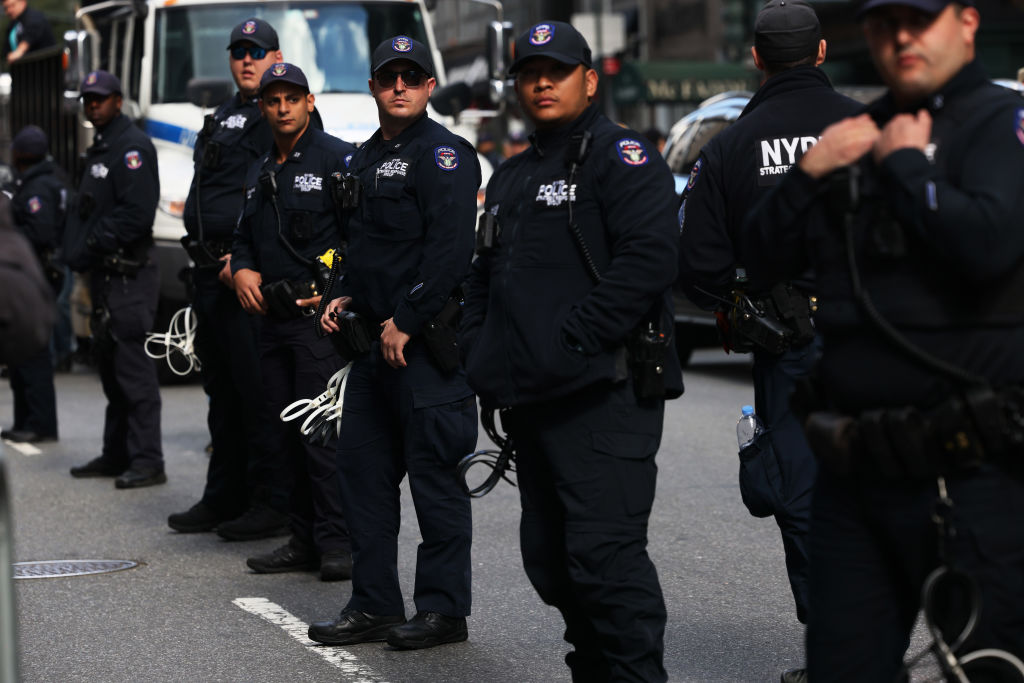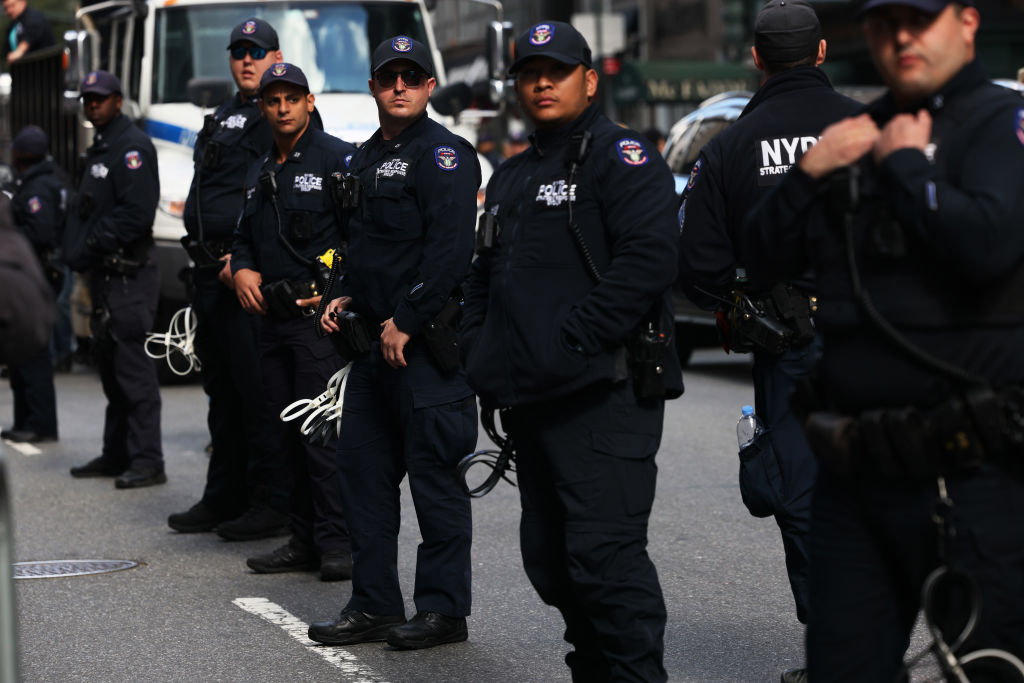America loves cops. That’s been the case for decades. As a result, our entertainment industry has sold us on the brilliance and courageousness of police officers. The proper term for this is copaganda, which is propaganda to help create a positive image of the police.
Whether it’s movies or television shows, cops have historically been portrayed as upstanding altruistic heroes who can do no wrong. In the 20th century, shows like “Hawaii Five-0,” “Miami Vice,” and “Hill Street Blues” presented this image. The more present-day examples are other popular procedural series like “Law & Order,” “Blue Bloods,” “Criminal Minds,” and “NCIS.”
We also can’t forget reality series like “Cops” and “Live PD.”
But we all know the truth about the police. Despite the good that they can do, they’re flawed, they can bring a lot of harm, and in some cases, they can be straight-up evil. While most of the popular shows around policing won’t sincerely touch on those realities, there are some that represent more of the nuances and complexities around law enforcement.
While these shows aren’t necessarily anti-police, they’re certainly anti-copaganda. They’re rooted in more realism. With that, here are the five greatest anti-copaganda shows of all time.
(Beware of some spoilers ahead.)
5. NYPD Blue (1993-2005)
A groundbreaking network police drama, “NYPD Blue” came out just a few years after “Law & Order” and it quickly separated itself as the grittier and tougher police procedural. Taking place in a fictional New York City police precinct, the ABC series followed the lives of officers as they navigated their personal and professional tribulations. It sounds straightforward, but in the early ’90s, there wasn’t another broadcast network drama that would push the limits the way “NYPD Blue” did. The show faced controversy for airing curse words, partial nudity, and certain levels of violence over Federal Communications Commission (FCC) airwaves.
Despite the controversy, the show was a ratings hit. What made this show textbook anti-copaganda is how the cops were portrayed. For example, the pseudo-main character, Detective Andy Sipowicz (portrayed by Dennis Franz), started the series as a racist alcoholic. Although his temperament dwindled as the series went on, no one watching it would believe this guy could do no wrong. All the main characters had their flaws on full display and up to that point, no one had dared to show cops in this light on network TV.

4. Homicide: Life on the Street (1993-1999)
Perhaps someone could look at an episode of the Baltimore-based “Homicide: Life on the Street” series and walk away thinking it fits into the same box of other police procedurals. They’d be wrong. Based on the David Simon book “Homicide: A Year on the Killing Streets,” the NBC drama took a similar stance that “NYPD Blue” did. It depicted homicide detectives in a city ravaged by violence as everyday people who clock in to work each day.
The murders they investigated were horrible but because they dealt with them on a regular basis, it just became second nature to them. They didn’t look over a dead body and say, “I’ll stop at nothing to solve this case.” They just took their notes, collected what evidence they could, and tried to close the case. “Homicide” featured an ensemble cast with memorable performances, and while the series was never a huge hit, it had a level of depth that other police dramas couldn’t begin to touch.
3. We Own This City (2022)
Based on the 2021 nonfiction book by reporter Justin Fenton, “We Own This City” is the only show on this list that’s based on a true story. The six-part miniseries followed the rise and fall of a Baltimore Police Department elite squad known as the Gun Trace Task Force (GTTF). The team was assembled to get guns and violent criminals off the streets of Baltimore. Instead, they engaged in criminal activity so abhorrent in the city that the DEA and FBI had to bring them down.
Due to the premise, there’s no way this show could be viewed as copaganda but creators David Simon and George Pelecanos didn’t use the real-life story to denigrate cops. They showed how corruption and bad policing can destroy an entire community. When members of the GTTF terrorized people for no reason, it created tension between the police and the community. That tension makes it harder for good police to do their job and provide public safety for taxpayers. “We Own This City” reveals the true cost of bad policing.
Recommended Stories
2. The Shield (2002-2008)
When network television and HBO dominated the TV drama space, a small cable network (FX) decided to take a crack at the genre when it green-lit a little series about a rogue cop and his team of anti-gang officers. Thus, “The Shield” was born and helped change the landscape of cable television. With a classic anti-hero, Vic Mackey (Michael Chiklis), at the center of the show, “The Shield” followed the ruthless detective and his team as they broke the very laws they enforce to take down criminals and enrich themselves, all while other police officers tried to bring them down.
Now, many viewers would probably say it was hard not to root for Mackey throughout the course of the series — especially when he came face to face with a motivated yet deranged Internal Affairs Lieutenant named Jon Kavanaugh (played brilliantly by Forest Whitaker). But the show somehow didn’t glorify Mackey or any of the corruption he and his fellow cops took part in. Instead, it tricked you into seeing how easily cops can abuse their power, even when their fellow officers want to hold them accountable. “The Shield” took the tired stereotypes of the police drama and turned it on its head. If you make it to the final episode and think the series was trying to dignify Mackey’s actions, then you missed the point.
1. The Wire (2002-2008)
“The Wire” is arguably the single greatest television show of all time. It would take too long to go into all the reasons why. Covering every aspect of a city in constant turmoil, “The Wire” chronicled the city of Baltimore and its various institutions, from the police department to the drug trade, the port system, the city government, the schools, and the local newspaper. The show explored how these different sections fail the people who work in them and ultimately fail the city. The most consistent lens the show followed is the police department. “The Wire” ran for five seasons on HBO, and while it built a nice niche audience, it could never grab mainstream attention. Today, though, the show is more popular than it ever was when it aired.
While it would be a mistake to label this as a traditional cop drama, each season of the show heavily featured the city’s police department and did so with more nuance and accuracy than any television has ever done. From the way the police investigated drug crimes to overemphasizing the war on drugs to police leaders focusing on stats rather than building a real effective investigative strategy, “The Wire” showed it all. It’s the antithesis of copaganda. It’s a fair and balanced portrayal of law enforcement. There has never been a more precise portrayal of American policing on the small screen.
Never miss a beat: Get our daily stories straight to your inbox with theGrio’s newsletter.




